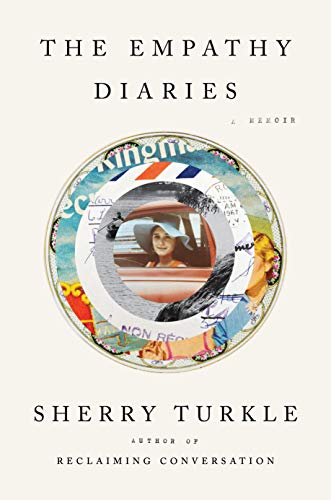Books |
The Empathy Diaries: A Memoir
Sherry Turkle
By
Published: Mar 09, 2022
Category:
Memoir
Sherry Turkle, Professor of the Social Studies of Science and Technology at MIT, has spent decades studying the impact of digital technology on our lives and culture. She’s written groundbreaking books about the ways technology has changed our relationships. How she created this field at an institution hostile to women and her innovative research is one of the themes of her memoir. It is not, however, the reason to read it.
The better story in “The Empathy Diaries” is how Sherry Turkle, who grew up poor in Brooklyn, discovered her identity — literally. Here’s how the book starts:
During the long hours of my grandmother’s dying, I begin to read the Brooklyn telephone book. I look up the Charles Zimmermans. There are pages of them. I study the entries carefully. It’s August 1975; I’m twenty-seven. For as long as I can remember, I’ve been both searching and not searching for Charles Zimmerman, my father, whom I haven’t seen since childhood.
There’s a secret to be unearthed. Her parents divorced before she ever knew her father. Her mother remarried. Her legal name was no longer used — at five, she was to say she was Sherry Turkle. And it was as Sherry Turkle that she ascended.
Driven? Breathtakingly so. In l960, she learned that John F. Kennedy had gone to Harvard, and it became her ambition to go there. She wrote for information and learned it was men only, but just down the road there was Radcliffe. She acquired the catalogue. In one photo, a girl with long hair read a book at a French café in Harvard Square. That image was all the motivation she needed.
She was the valedictorian in junior high school. She edited the high school paper. She was, she writes, “trying to be an object that Radcliffe could love.” She was admitted and given a scholarship, and yet, when she thought of all she had accomplished, “I was ashamed of my achievement because of how much I thought my effort showed.” Her achievements continued. She gained a little confidence. “What Harvard could do best was give me an opportunity to become what I was best in,” she writes. “I was going to go all in on that.”
Much later, at a lecture in France, Jean Clavreul, a close associate, of Lacan, makes a point much more compelling for Turkle than most of Lacan’s writing:
“The name of the father is communicated with or without the father’s presence. It’s all in how the mother presents him. Or erases him. Later I would come across the thought that an absent father makes everything seem possible and nothing seem safe. You have no name. You can be anyone. But there is no guardrail, no backup. I sat in Clavreul’s lecture, crying.”
This book has been on every “best of” list, received rave reviews, won honors. Why? Because as you follow a life story, you’re also getting a larger context: “In France, I came to see my personal and political interests as one. Social wounds show up as symptoms.” I marked the margin next to that sentence so energetically I practically drilled through the paper. Another writer might have expanded on it. Turkle’s life story and her work are so rich that any perception is part of a larger story: “At MIT, I had a front-row seat on a movement from a psychoanalytic to a computer culture.”
Such massive intelligence could be off-putting. It isn’t here because it’s matched by candid accounts of Turkle’s relationships. About her marriage to Seymour Papert: “He felt most comfortable when everyone, man or woman, was in love with him.” It ends badly. She spares the reader nothing.
I hesitate to confess my crush on Sherry Turkle. But in the Times, I was relieved to read that Dwight Garner also has one.
Sherry Turkle’s memoir, “The Empathy Diaries,” is a beautiful book. It has gravity and grace; it’s as inexorable as a fable; it drills down into the things that make a life; it works to make sense of existence on both its coded and transparent levels; it feels like an instant classic of the genre.
A personal story is also the story of ideas. Two books in one.
[To read an excerpt, click here. To buy the paperback, click here. For the Kindle edition, click here.]


